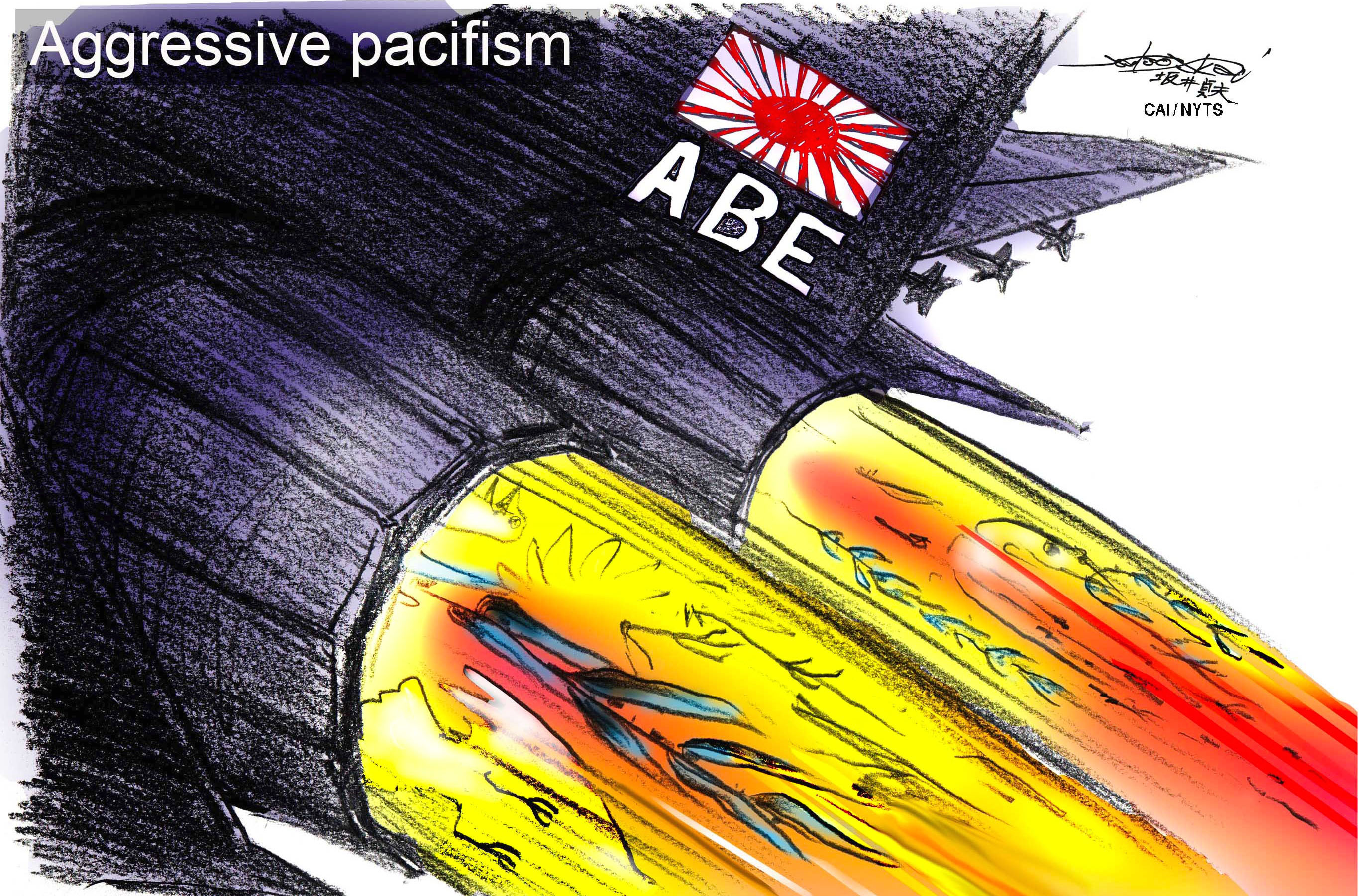The Abe administration has tabled before the Diet a package of legislation to drastically change Japan's national security policies. The turnaround in the security posture sought by the administration is closely linked to the question of how one evaluates the path that the nation has trodden in the postwar period. As the 70th anniversary of Japan's 1945 surrender in World War II approaches, we need to think of the meaning of our postwar history together with the path that the nation must follow from now.
When he addressed politicians and citizens in the United States during his visit from late April to early May, Prime Minister Shinzo Abe prided himself on the stability and prosperity of Japan's postwar democracy, and said that they were made possible by the nation's common values and cooperation with the U.S.
Abe is correct. Japan has realized democracy and prosperity under the Constitution drafted by the U.S.-led occupation forces. But if he were sincere as a politician, he should have immediately protested to the U.S. that the American forces imposed the Constitution on Japan and should have declared that Japan would quickly write a constitution on its own — because he once called the current Constitution "disgraceful" by criticizing ideals expressed by its preamble and has made it his mission to amend the supreme law.



